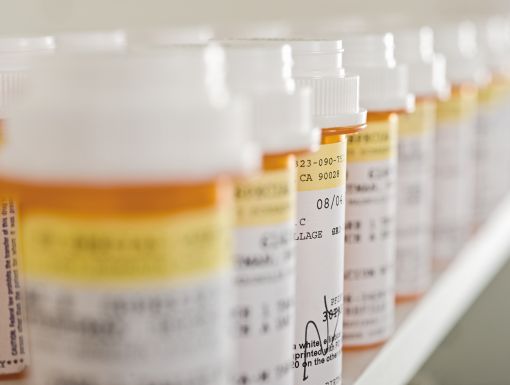
6 Top Tips for Organ Transplant Nutrition and Fitness
Life before and after an organ transplant can be filled with highs and lows. To receive a life-saving transplant, patients may be asked to make certain changes in their lives related to diet and exercise which can be uncomfortable at first. And as transplant recipients, healthy dietary habits and regular exercise also play an important role.
Below are the questions we hear most frequently from our transplant patients and their family members. By understanding the role that diet and exercise play in the overall transplantation process, you will be better prepared to navigate the transplant “new normal” successfully.
How can a patient prepare for an organ transplant through their diet?
Patients should try to follow a healthy well-balanced diet before transplant. Things like starting the day off with a healthy breakfast, avoiding high amounts of sugar and unnecessary additives and snacking smart will likely be encouraged. Transplant patients may be asked to reduce their sodium or salt intake to lower blood pressure and fluid retention. This will help patients remain more mobile and active.
A diet of adequate protein is also important in maintaining muscle mass, functionality and overall nutrition, while also helping with a quicker recovery. The amount of protein a patient needs before transplant will vary depending on their individual weight and which organ they are hoping to receive. For those in need of a kidney transplant, follow your dialysis unit dietitian’s guidance with your diet. If you are pre-dialysis, your dietitian will provide information during your evaluation pointing out foods that are rich in potassium and phosphorus you may need to limit.
Does a patient have to watch their diet after an organ transplant?
Yes, diet still plays a big role after a transplant. It is important to maintain a healthy weight and be physically active regularly. A healthy post-transplant diet includes controlling blood sugar, avoiding excess weight gain and closely following all food safety and handling precautions. Your lab results will be monitored very closely after transplant. Kidney transplant recipients may still need to adjust their intake of high potassium or phosphorus foods. These levels and your new organ’s function can both be affected by your new medications.
Why would a patient need to avoid certain foods?
After a transplant, patients will need to take immunosuppressive drugs, also known as anti-rejection drugs, for the rest of their lives. These medications help lower the risk of a new organ being rejected. However, these drugs also weaken the body’s ability to fight infection. Taking these medicines increases your risk of getting very sick from germs, so it is key to assure all food and beverages you consume are handled properly. Transplant recipients will need to avoid any cross-contamination or consuming any food that may be spoiled, rotten or past the expiration date.
Patients may also need to take steroids post-transplant, which can cause unwanted weight gain, increased blood fat levels and salt and fluid retention. Making healthy food choices and sticking to appropriate portion sizes can help patients avoid gaining too much additional weight. Patients should keep in mind that excessive weight gain after transplant can lead to recurrent/new fatty liver or renal disease in their new organ.
What are some foods to avoid?
Transplant patients should avoid raw or undercooked meat, poultry and seafood like fin-fish and shellfish as well as food that is spoiled, moldy or past its use-by date. They should also not consume unpasteurized milk and foods made from unpasteurized milk like cheese and yogurt, and uncooked or undercooked eggs and any products containing them.
Some fruits and vegetables are off-limits including grapefruit and grapefruit juice as well as pomegranate and pomegranate juice, especially if one of your immunosuppressive medications is cyclosporine or PROGRAF® (tacrolimus). Unwashed raw fruits, vegetables and salads, damaged fruits, unpasteurized juices and ciders and sprouts like alfalfa or bean sprouts may also be forbidden.
Who can help patients plan a proper diet after their transplant?
A registered dietitian at a transplant center can help patients eat healthy post-transplant.
Can a patient exercise after a transplant?
Exercise and physical activity should be a regular part of life after an organ transplant to continue improving overall physical and mental health. Regular exercise after a transplant helps boost energy levels and increase strength. It also helps maintain a healthy weight, reduce stress and prevent common post-transplant complications such as high blood pressure and cholesterol levels.
Your transplant team will recommend a physical activity program based on individual needs and goals. After surgery, you must check with your physician when it is appropriate to resume exercise and what type of exercise you plan to do at that time. Some people may be advised to try low-impact aerobic exercises like walking, swimming and hiking, or resistance or weight training to regain muscle function and strength. While exercising, transplant patients will need to be mindful of starting slowly and building their endurance, as well as exercising precautions at their gym by disinfecting equipment before use.
A registered organ donor can save up to 9 lives. Learn more at Ochsner.org/save9.



